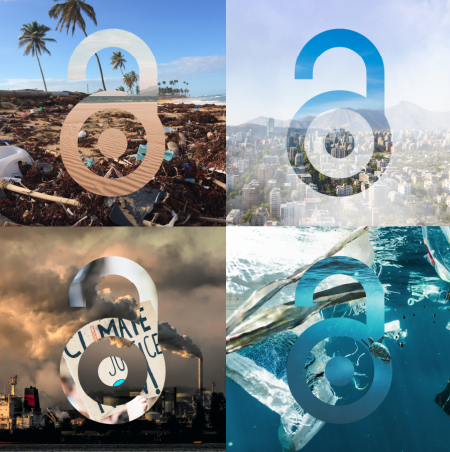In celebration of Open Access Week, Colleen Cressman, the project coordinator at Harvard Library’s Open Scholarship and Research Data Services, writes about moving beyond research outputs as an open access goal.
“We are not pursuing a mere equality of access to outputs, where the lack of access is remedied by removing subscription costs and releasing materials under open licenses. That’s not enough, because we aren’t all starting with the same inputs.What does ‘open access’ mean to you? I asked this question of my colleagues this week as Harvard Library celebrates International Open Access Week.
It’s an ambiguous question. It asks for a definition, maybe from a particular or personal standpoint. And it invites a defense of why open access matters; what the point of open access even is.
When I talked with Katie Mika, Data Services Librarian here at Harvard Library and at the Institute for Quantitative Social Science, she said, “while ‘open access’ may have a narrower technical definition, I like to think of it as the general concept of sharing or publishing outputs from a research project, using open licenses and open platforms.”
She went on to explain that open access outputs are typically articles, chapters, books, theses, and, increasingly, “the data, documentation, and analysis workflow or code used to produce results and draw conclusions in a paper or project.”
These outputs abound as the result of decades of ongoing advocacy by library practitioners, students, and scholars. Open-access advocates aim to make scholarship free to read, free to publish, and free to remix and reuse—irrespective of one’s institutional affiliation, geographic location, socioeconomic standing, and other factors.

At Harvard, students encounter open-access resources daily and in a variety of forms, across numerous disciplines, and at many common sites of research: while perusing HOLLIS, retrieving papers from DASH and datasets from Harvard Dataverse, or simply browsing the web.
But ‘open access’ can and should be more than a label for outputs, as important and useful as that label is. In fact, many of the advocates and practitioners who push back against paywalls and commercial publishers’ skyrocketing profits are not exclusively concerned with research outputs.
“I think open access is as much about the process and the values behind openly sharing as it is about the materials and content that are shared,” Katie said. “Research thrives when we share our process and methods openly in order to promote equity and diversity and generate knowledge that is most broadly useful for society, not just for elite institutions and capitalist interests.”
For my colleague and those who share similar views, ‘open access’ both refers to research outputs and denotes the ways the outputs are produced and made available. This answer to the question “What does ‘open access’ mean to you?” focuses attention on the procedures by which we make outputs available, the reasons we do it, and the decisions we make in taking these means, not those means, to our ends.
We are not pursuing a mere equality of access to outputs, where the lack of access is remedied by removing subscription costs and releasing materials under open licenses. That’s not enough, even if it’s part of the pursuit, because we aren’t all starting with the same ‘inputs,’ so to speak.
When ‘open access’ is used merely as a label for what we can do with research outputs, it can assume a uniform ‘we.’ For example, a ‘we’ with reliable internet connections and computers with speedy processors. Or a ‘we’ that navigates the digital world without disabilities, for whom unstructured PDFs and websites are easily readable.
Too much emphasis on the outputs can keep hidden the nature and gravity of the inequalities we seek to eradicate. With fee-based open-access journals, readers only get free access because responsibility has fallen to authors to pay for the rest of us to leap over the paywall. These author-side fees have steep price tags that continue to rise, to the point where even institutional funds cannot sustain the costs. The result is a widening gap between those who can afford to participate in the project of open access and enjoy the benefits of increased visibility—and those who are priced out altogether.
So, if not a simple equality of access as measured by the outputs themselves, what are we pursuing? Equality among the persons who want and need scholarship in pursuit of their own goals and well-being: the readers and writers, students and teachers, patients and medical practitioners, tinkerers and researchers, and others.
This is the real target. The very possibility of reaching it requires we pay close attention not just to the outputs but to the inputs, too. It requires we take care in choosing the publishing models we champion. It requires we invest in infrastructure that resists enclosure by companies putting profits ahead of the public good. It requires we stop prioritizing the most advantaged communities at the expense of the least. Only then can we say we haven’t missed the point of open access.
Colleen Cressman is the project coordinator at Harvard Library’s Open Scholarship and Research Data Services. Her and her colleagues' work focuses on shifting the information landscape towards a more equitable, diverse ecosystem of trustworthy resources, where impactful research is freely available to all who need it.